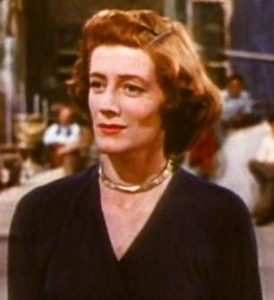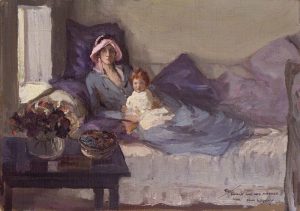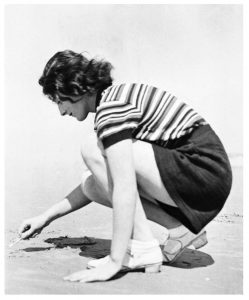Finest Hour 162
Action This Day – Spring 1889, 1914, 1939, 1964

Winston Churchill, Parliament Square, London © Sue Lowry & Magellan PR
February 18, 2015
Finest Hour 162, Spring 2014
Page 40
By Michael McMenamin
125 YEARS AGO
Spring 1889 • Age 14
“I like to have you all to myself”
J.E.C. Welldon, Winston’s Harrow head master, wrote to Lord —Randolph in April to advise that he would be taking Winston into his own house during the next term “He has some great gifts, and is, I think, making progress in his work.” Welldon encouraged Lord and Lady Randolph to visit the school in May or June: “You would have, if nothing else, at least the opportunity of seeing what Winston’s school life is like.”
Winston continued constantly and fruitlessly to importune his parents to visit. In June he wrote to his mother: “Do do come down tomorrow. I would be disappointed if you did not come. I am looking forward to tomorrow tremendously.”
She did not come, and her disappointed son wrote, “I am sorry…as I had given up going to a sham fight and had little or nothing to do in the afternoon.” Apparently his mother had pleaded illness, for he expressed sadness to hear she was not well, “but I hope you will be all right by tomorrow. Please do do do do do come by the 12.59 from London arriving at 1.29.” Having had one afternoon spoiled by his mother’s absence, he was taking no chances:
“Please wire immediately you receive this—don’t wait till 12 or 1 before you let me know as I have to make arrangements…I hope you will come my darling Mummy if you are well enough. Please come alone when you come as I like to have you all to myself.”
Earlier in the spring, Lord Randolph had sent Winston money for a bicycle. “It is so kind of you,” Winston wrote. “I should have written long ago only I wanted to wait until I could write and say that I could ride it. I can now, on Saturday I rode 8 miles with it, it is a beautiful little machine.” But he soon had a mishap. “I am sorry to say Winston has fallen off his bicycle.” Welldon wrote Lady Randolph on 20 June. “I do not wish you to think the hurt is serious.” It was serious enough: the diagnosis was “a slight concussion of the brain,” which left him bedridden and required “careful watching for a few days.”
100 YEARS AGO
Spring 1914 • Age 39
“Rejoice and relieve your heart”
Brassey’s Naval Annual, often a critic of Churchill, wrote in 1914 that he “showed particular interest in all matters relating to the Naval Air Service and made many flights in aeroplanes and seaplanes. No occupant of shaped, and ill-secured to the fuselage. The switch is also cheap and common to the last degree. No one would think to put such fittings into a motor-car.”
Churchill had been flying for over a year and his original instructor said “he showed great promise.” But flying did not sit well with Clementine. “I have been at the Central Flying School for a couple of days,” he wrote her on 29 May “flying a little in good & careful hands & under perfect conditions. So I did not write you from there as I know you wd be vexed.”
She must have been more than a little vexed because barely a week later, he gave up flying. “I will not fly any more until at any rate you have recovered from your kitten,” he wrote her on 6 June, “& by then or perhaps later the risks may have been greatly reduced.” He did want her to know how big a sacrifice he was making:
This is a wrench because I was on the verge of taking my pilot’s certificate…But I must admit that the numerous fatalities of this year w[oul]d justify you in complaining…This is a gift—so stupidly am I made—w[hic]h costs me more than anything wh c[oul]d be bought with money. So I am v[er]y glad to lay it at your feet, because I know it will rejoice & relieve your heart.
His flying experience was useful to a First Lord of the Admiralty: “I know the difficulties, the dangers & the joys of the air—well enough to appreciate them, & to understand all the questions of policy wh will arise in the near future.”
75 YEARS AGO
Spring 1939 • Age 64
“Law and public faith”
On 31 March, two weeks after Hitler occupied the rump of Czechoslovakia and began making demands on Poland, Prime Minister Chamberlain gave to Poland what he had refused Czechoslovakia—a guarantee that Britain would come to its aid if its independence was “clearly threatened.” Churchill supported the move, while attacking a statement in The Times that “there was no guarantee for the integrity of Poland, but only for its independence.” The guarantee involved “no blind acceptance of the status quo,” The Times had stated, implying that German demands for Danzig and the Polish Corridor could be negotiated without threatening Poland’s independence. “This is not the time for negotiation,” Churchill told the House. “After the crime and treachery committed against Czechoslovakia, our first duty is to reestablish the authority of law and public faith in Europe.”
Writing his sister, Chamberlain said The Times’s statement on Poland was “mostly my own,” and “I was well-satisfied with it.…firm, clear but stressing the point (perceived alone by The Times) that what we are concerned with is not the boundaries of States, but attacks on their independence. And it is we who will judge whether this independence is threatened or not.”
Four days later, Mussolini invaded Albania and Chamberlain gave Polish-type guarantees to Romania, Greece and later Turkey. Churchill supported Chamberlain, but the PM was dissatisfied, writing that he “felt depressed” when Churchill finished because there had been “an acid undertone” to the speech “which brought many cheers from Labour benches.”
On 28 April, Hitler renounced Germany’s Non-Aggression Treaty with Poland and the Anglo-German Naval Agreement, which Chamberlain had lauded in his note signed by Hitler the previous October (page 26).
In May, under pressure from Saudi Arabia, Egypt and Iraq, the British government issued a White Paper repudiating the Balfour Declaration for a Jewish homeland in Palestine and reduced Jewish immigration to only 75,000 for the next five years, after which it would cease altogether unless permitted by Palestinian Arabs. Churchill was appalled: “What will our potential enemies think? What will those who have been stirring up these Arab agitators think? Will they not be encouraged by our confession of recoil? Will they not be tempted to say: ‘They’re on the run again. This is another Munich,’ and be more stimulated in their aggression?” Quoting Chamberlain’s support of the Balfour Declaration twenty years earlier, Churchill said the Jewish settlers “have fulfilled [Chamberlain’s] hopes. How can he find it in his heart to strike them this mortal blow?”
Chamberlain, as Martin Gilbert wrote, believed that having “the Moslem world with us” was of “immense importance….if we must offend one side, let us offend the Jews rather than the Arabs.” To his sister, he attributed German persecution of Jews to “a jealousy of their superior cleverness,” adding: “No doubt Jews aren’t a lovable people; I don’t care about them myself; but that is not sufficient to explain the Pogrom.”
50 YEARS AGO
Spring 1964 • Age 89
“My oldest and closest friend”
Churchill went to the theatre on 25 April to see his daughter Sarah play the lead role in Fata Morgana. It was, Martin Gilbert tells us, his last appearance in public, save for two visits to the House of Commons. One of those visits was on 4 June. Harold Wilson, leader of the opposition Labour Party, had returned from Moscow and conveyed to Churchill good wishes from Soviet leaders.
Lord Beaverbrook died on 6 June and Churchill wrote to The Times: “I am deeply grieved at the loss of my oldest and closest friend, who served his country and his causes valiantly and was the most loyal and devoted of comrades.” Churchill’s private secretary, Anthony Montague Browne, wrote Lady Violet Bonham Carter on the 15th: “In recent years, Lord Beaverbrook was one of the very few whose visits consistently caused Sir Winston to light up, and…he confided in him as much as anyone on both personal and private matters.”
Subscribe
WANT MORE?
Get the Churchill Bulletin delivered to your inbox once a month.






